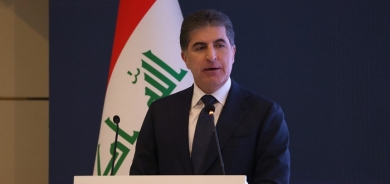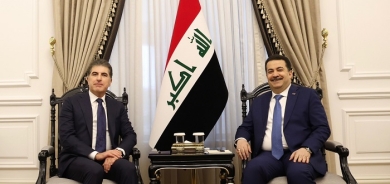Pro-Iran Hashd al-Shaabi Faces Crisis as Senior Commanders Near Retirement

The Iran-backed Hashd al-Shaabi paramilitary forces are facing a leadership crisis as many of their senior commanders, including the head of the organization, approach mandatory retirement under Iraq’s pension law, an informed source in Baghdad told BasNews.
Hadi al-Amiri, Secretary-General of the Badr Organization, is reportedly spearheading efforts to introduce legal amendments that would prevent the forced retirement of these commanders. According to BasNews, the Security and Defense Committee of the Iraqi Parliament has established a special committee to draft changes to the Hashd al-Shaabi law, with two meetings already held between the committee and Amiri.
Proposed Legal Amendments
A key aspect of the proposed amendment is to extend the service period for senior Hashd al-Shaabi commanders by three years beyond the retirement age applied to regular soldiers. Additionally, lawmakers are exploring the possibility of reclassifying the head of Hashd al-Shaabi as a civilian position, which could exempt it from mandatory retirement regulations.
However, a previous ruling by Iraq’s Federal Court stipulates that the position is subject to civil service regulations, making retirement unavoidable under current laws. To counter this, one proposal being considered is to grant the head of Hashd al-Shaabi the authority to override retirement rules under the revised law.
Internal Divisions and Political Stalemate
Despite Amiri’s push for the amendments, internal disagreements within the Shiite factions pose a significant challenge. Opposition from factions within Hashd al-Shaabi, particularly those aligned with Nouri al-Maliki’s State of Law Coalition and Qais al-Khazali’s Asaib Ahl al-Haq, could hinder the legislative process.
Meanwhile, Sunni Arab lawmakers have distanced themselves from the discussions, and Kurdish factions have yet to take a definitive stance on the proposed changes.
U.S. Concerns and Broader Implications
The United States has previously advocated for the dissolution of Hashd al-Shaabi, arguing that the group serves as an extension of Iran’s military influence in Iraq while relying on Iraqi government resources. The ongoing debate over Hashd al-Shaabi’s future reflects the deep divisions within Iraq’s political and military landscape.
As discussions over the amendment continue, the fate of the powerful paramilitary force remains uncertain, with potential consequences for Iraq’s security dynamics and regional stability.












